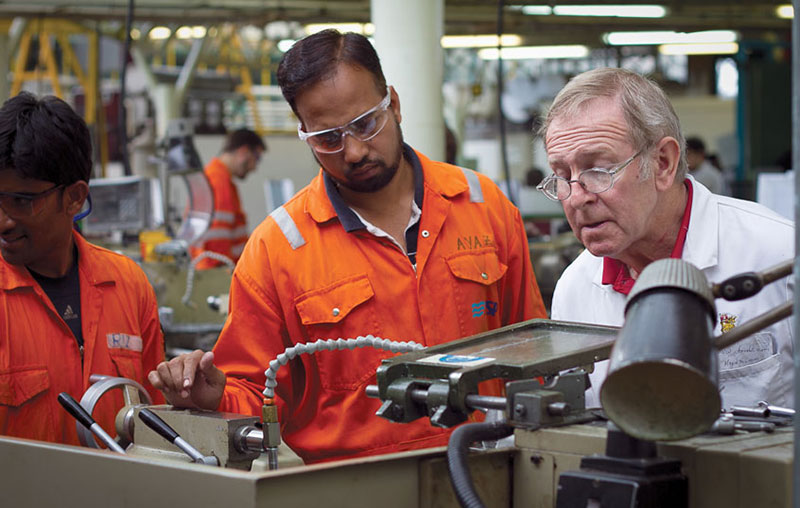
Caring for crew – the mentoring seafarers project
Solent researchers are looking at how mentoring schemes can ensure long-term benefits in education and wellbeing – improving retention and creating a safer, more efficient industry.
Life at sea is very different to life onshore. Working on a ship means working shifts in a noisy, self-contained environment, far from family and friends, and sometimes with a relatively small number of co-workers to talk to.
In this unique environment, protecting the wellbeing of your seafarers is essential – not just their physical safety, but also their morale and mental health. “Health and happiness links to our ability to do a job,” says Sarah Honebon, part of a team of Solent University researchers exploring mentoring and wellbeing in the maritime industry. “When was the last time you gave something your full effort and attention when you felt ill, unvalued or unhappy?”
Led by Dr Kate Pike, whose previous research examined isolation, gender and multicultural crew, this latest project at Solent focuses on mentoring – and how mentoring schemes can ensure long-term benefits for both crew and the industry alike.
“Mentoring is an accessible and relatively low-cost way to support learning, pass on knowledge and offer seafarers a way to be heard,” Kate says. “It’s not the answer to everything, but having someone to discuss issues with while you are at sea can be a huge support and can make you feel less isolated.”
Like every industry there are challenges facing maritime, particularly in tightening markets; and as time and profit margins are squeezed, seafarers’ wellbeing and quality of life can sometimes be compromised.
Yet this corporate view may be short-sighted, Sue Honebon says. “Safety is vital at sea, so the importance of wellbeing and the potential for negative impact connected to wellbeing plays a huge part in the outcome. But studies also link health and happiness to productivity and profitability, something that seems to be lost with short term management strategies.”
Run in collaboration with the maritime trade union, Nautilus, with funding from the ITF Seafarers' Trust, Solent’s mentoring seafarers project is examining formal and informal mentoring schemes within various shipping companies, and highlighting good practice.
“Some individuals are clearly making a difference to seafarers’ lives and supporting them to stay in their jobs,” Kate says. “Retention and attraction into the industry is really important and word of mouth is a powerful tool.”
I will always be grateful to the officers who took me under their wing to mentor me and support my development from cadet to junior officer. Many of them went out of their way to guide me in the right direction, especially at a time when it was rare to have female seafarers aboard.
Sue Harland, Solent senior lecturer and former seafarer
“There are also good examples where corporate investment is evident, and mentoring is used as a valuable learning tool.. The Honourable Company of Master Mariners is one example, delivering a formal mentoring scheme for their cadets and associates.”
Often mentoring is considered as an aid to career advancement or senior networking – yet it has a more important psychosocial role to play, particularly for individuals joining a new ship. “Consider the psychological support someone feels, just to have that one friendly face who can offer their experience, act as a contact and guide and a social introduction to the teams,” Sarah Honebon says.
Moving between life at sea and leave ashore can also cause issues, in terms of readjusting to routine away from the ship – and vice versa. “Some seafarers find this very difficult,” says Sarah. “Stress can severely affect people’s wellbeing, and potentially compromise safety unnecessarily.”

So what’s the answer? “Education is key on all levels,” Kate says. “Encouraging a change in the industry to towards longer-term management strategies, including holistic approaches, would mean that teams on board and ashore will feel benefits from that investment.”
“Training and mentoring objectives should now include how to make people feel safe, valued and secure in their jobs. Our mentoring seafarers project will produce a report to discuss this in more detail, providing recommendations to the industry and hopefully contributing to International Maritime Organization (IMO) guidelines going forward.”
“But what is certain is that if the same practice is repeated, it is highly likely to produce the same results.”




